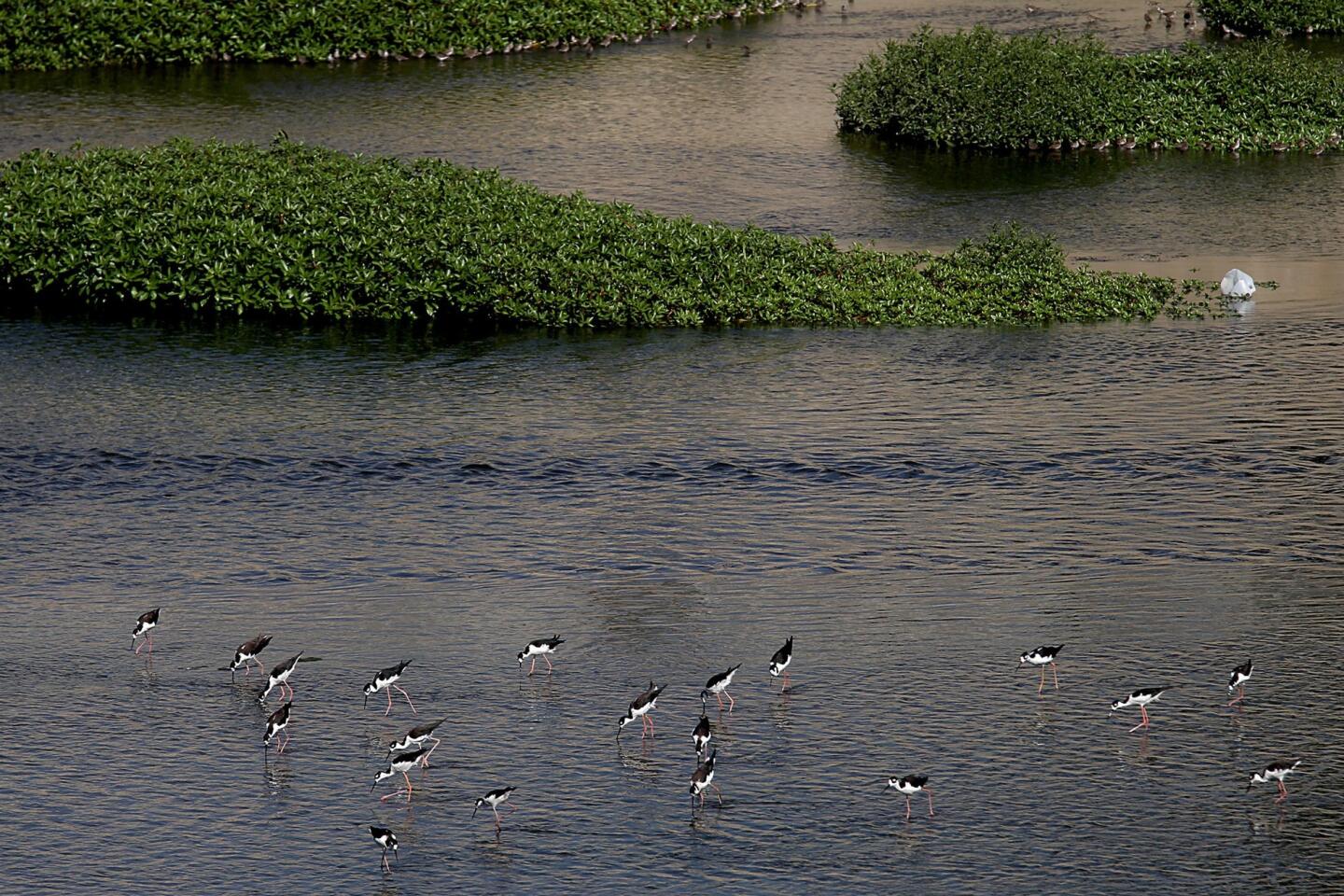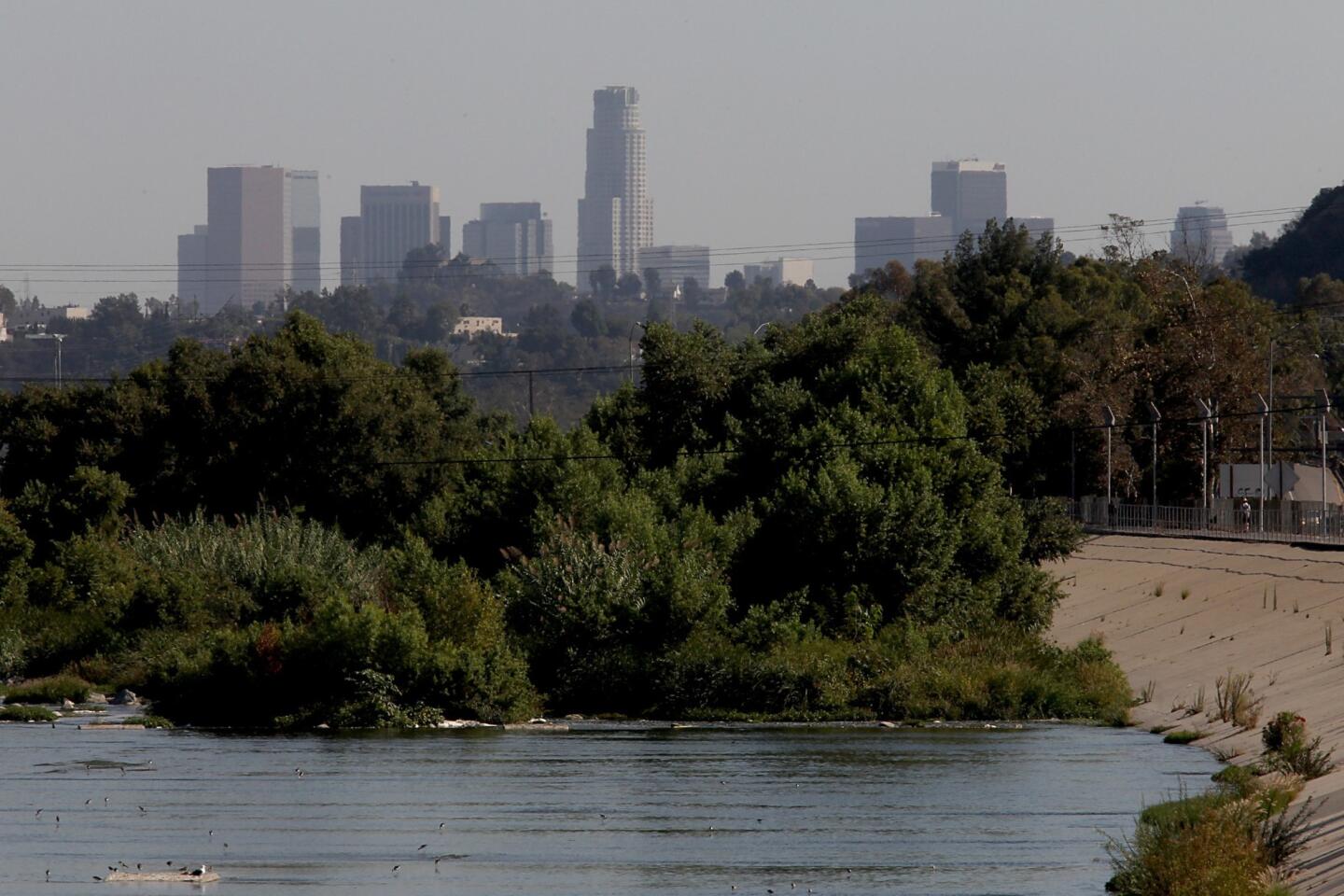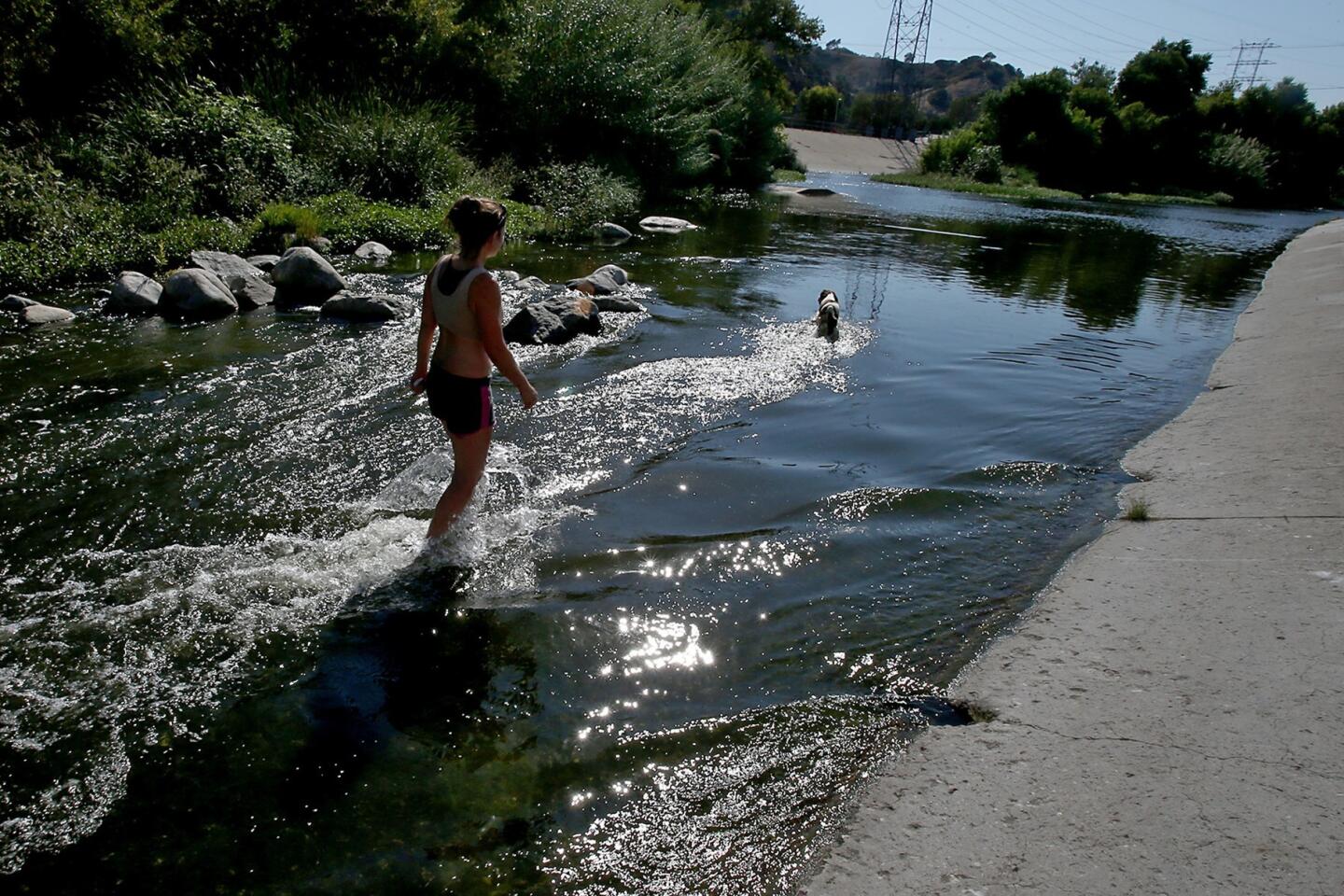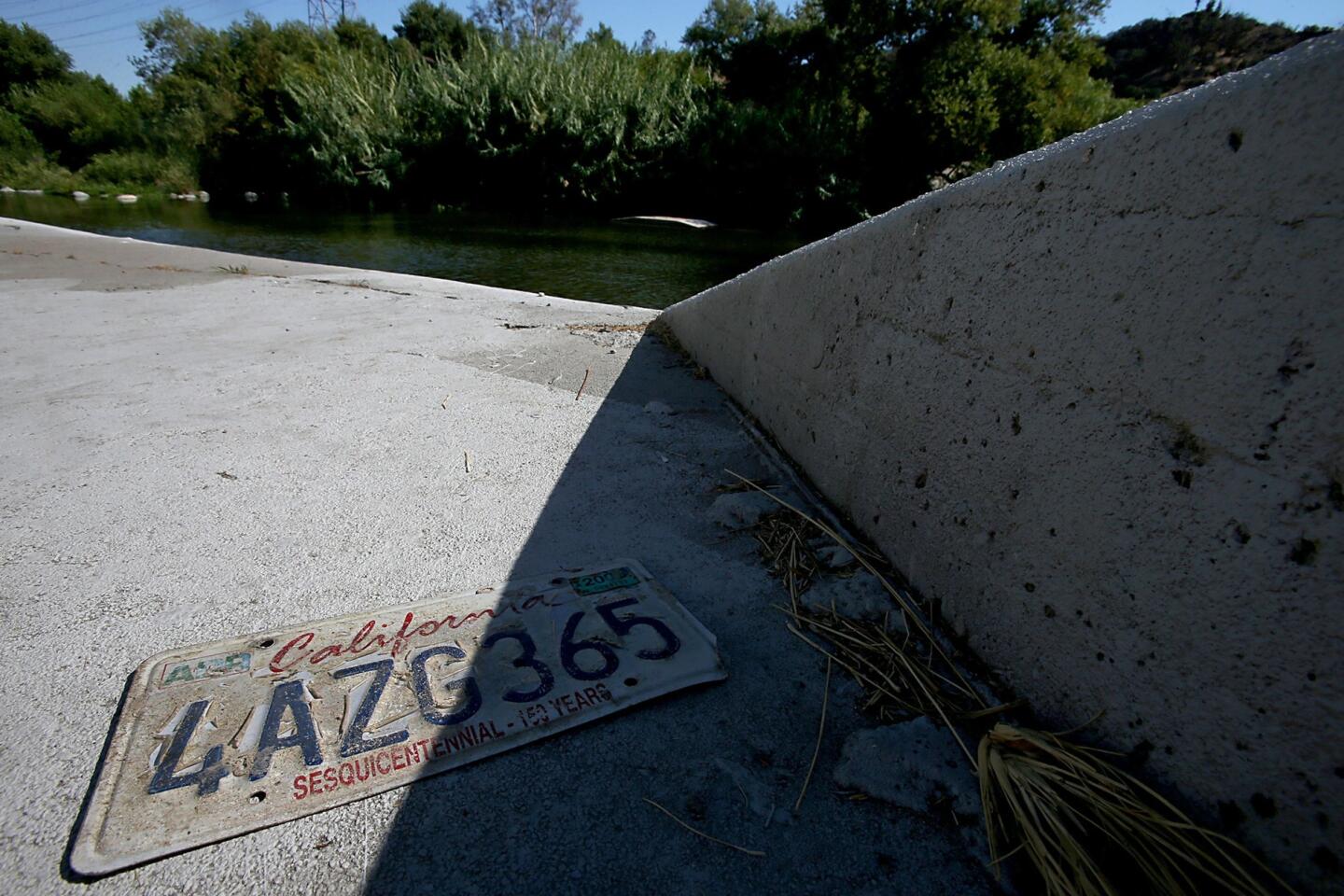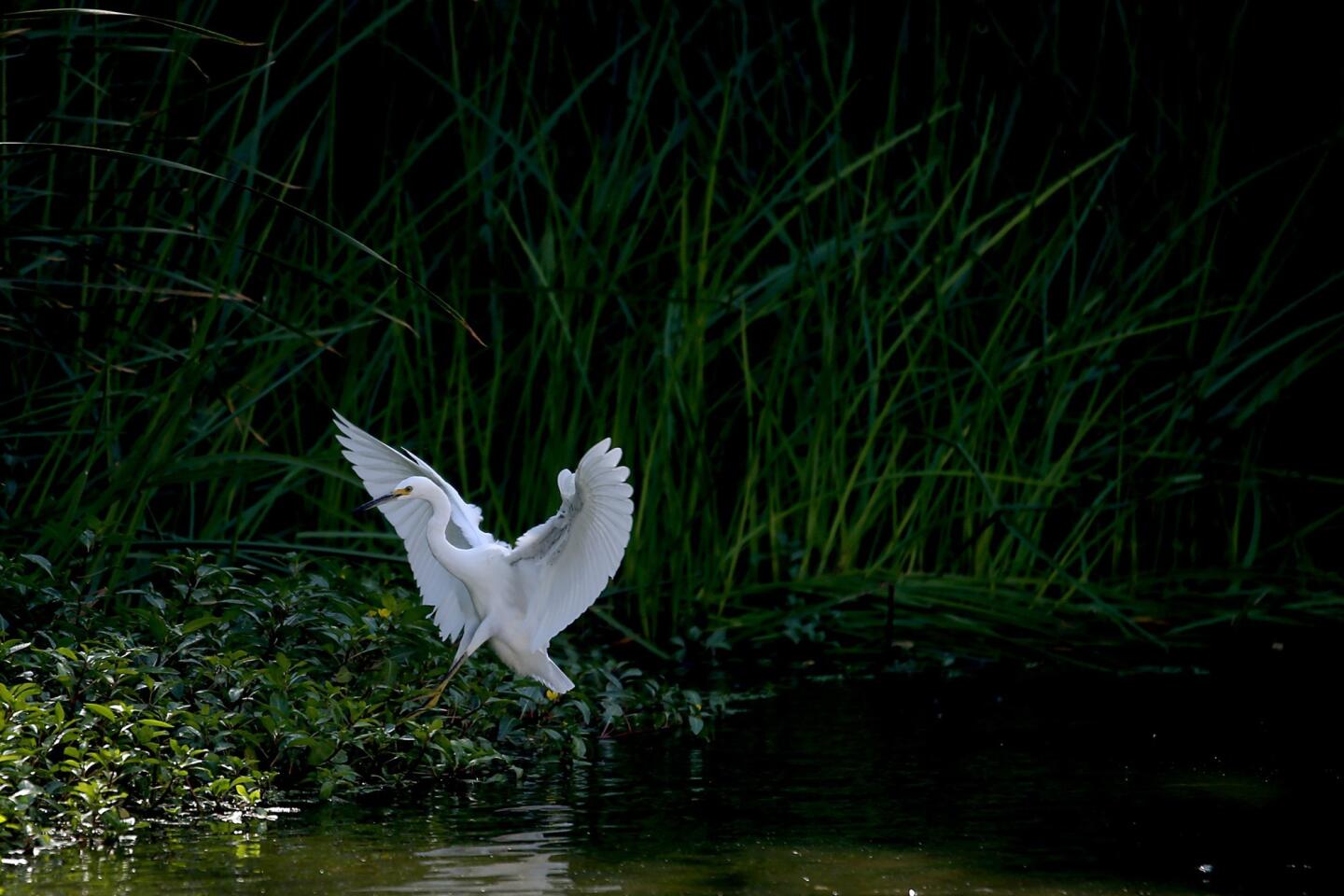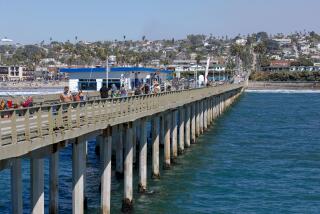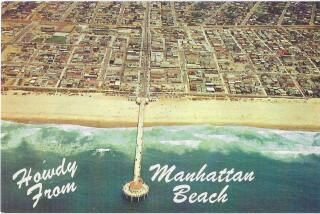A new course for the L.A. River
While Los Angeles moves through the 21st century, much of its landscape remains locked up in 1940s concrete. The storm drain and flood channel that was and will again be the Los Angeles River is a case in point.
The good folks at the U.S. Army Corps of Engineers were heroes to the Los Angeles of the mid-20th century for controlling the river’s periodic rages. It’s hard to remember, when looking at the high concrete walls of the channel today, that the trickle of water in the bottom can go so wild so suddenly that in times past the river jumped its banks and emptied in various places along the shore — in what is now Marina del Rey or Seal Beach, for example — as often as at its now-fixed mouth at the Port of Long Beach.
From today’s vantage point, though, it’s easy to see that the intrusion of both concrete and control was excessive. The engineers, with their military precision and their focus on safety, turned what was once the city’s water source into its back alley, its sewer and very nearly one of its freeways. The river’s role in replenishing aquifers, sustaining plant and animal life and providing opportunities for human recreation evaporated as quickly as a splash of water on concrete in the hot September sun.
The corps of today has helped advocates of restoration and planners rethink the river by vetting and narrowing to four a range of alternatives, all of which would retain the flood-control capacity of the earlier projects while punching through the bottom of the concrete channel and reinvigorating the city’s primary artery and wildlife corridor. Those engineers could well become heroes to the city too.
And yet — they are leaning toward a plan that would do little to end the separation between the river and Angelenos. The justification is the higher cost of more ambitious alternatives. But the federal government has made it clear, through the Urban Waters Federal Partnership, that restoration is worth the public investment, that the Los Angeles River is a priority and that reconnecting urban communities to their waterways is a top priority.
The City Council supports an alternative that includes terraced walks that make their way down the banks, turning the riverfront into a park that welcomes residents and visitors. Angelenos have an opportunity, during a review and comment period that begins Friday, to advocate for that plan or any other that better incorporates the river into a more enlightened, sustainable and verdant 21st century city.
More to Read
A cure for the common opinion
Get thought-provoking perspectives with our weekly newsletter.
You may occasionally receive promotional content from the Los Angeles Times.
